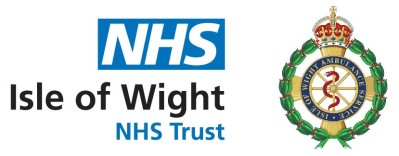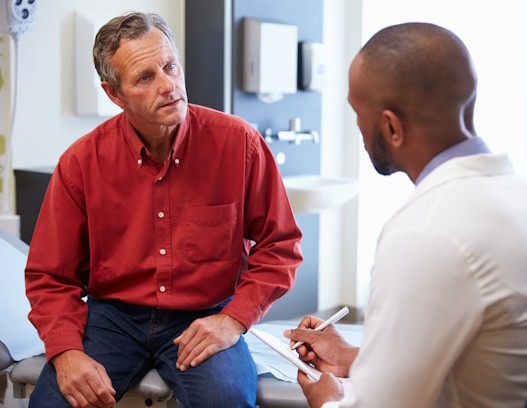This patient notification contains information about the research trial called RAPID2. RAPID2 is looking at the effectiveness of paramedics providing local anaesthetic injections for patients with a suspected broken hip.
Each year in the UK, over 75,000 people fracture their hip. This is an exceedingly painful injury and patients are given pain relief by a paramedic and taken to hospital by ambulance. The pain relief given usually includes morphine. This may not always work very well and can lead to side effects, such as confusion. In the RAPID2 study, paramedics may give a local anaesthetic injection (known as fascia iliaca compartment block or FICB) to patients with an injured hip before they are transported to hospital. Giving this injection may provide better pain control and better long-term outcomes than the alternatives currently in use.
The aim of the study is to test the safety, and effectiveness of paramedics providing FICB pain relief to patients with suspected hip fracture prior to hospitalisation.
This research has received government funding through the National Institute of Health Research Health Technology Assessment Programme (NIHR HTA). It is led by Swansea University in partnership with academic and NHS organisations, including the following NHS ambulance service and hospital sites:
| Ambulance Service | Hospital(s) |
|---|---|
|
East of England Ambulance Service NHS Trust |
James Paget University Hospital |
| Isle of Wight NHS Trust Ambulance Service | St Mary's Hospital, Isle of Wight |
|
South Central Ambulance Service NHS Foundation Trust |
Royal Berkshire Hospital |
| South East Coast Ambulance Service NHS Foundation Trust |
Princess Royal Hospital Royal Surrey County Hospital St Peters Hospital |
| South Western Ambulance Services NHS Foundation Trust | Royal Devon and Exeter Hospital |
| Welsh Ambulance Services NHS Trust | Morriston Hospital |
Only data for eligible patients will be collected. Eligible patients are those with a suspected hip fracture who are attended by a study paramedic and taken to a participating hospital. The ambulance services and hospitals will collect personal data (name, address, postcode, NHS number, date of birth and gender) for eligible patients. NHS staff will then invite these patients - or a family member/carer if appropriate - to complete patient questionnaires. The NHS staff will also use this information to ensure accurate recording of data relating to the suspected hip fracture in the ambulance service and hospital records. The NHS staff will send information about the clinical care of the suspected hip fracture, and information to enable linkage with routinely collected hospital data held in national databases. To do this, the NHS staff will use a process known as split file - whereby identifying information (e.g. NHS number, date of birth, gender) is separated from clinical information (e.g. date of admission to hospital) - to send data to be linked with routinely collected data held in NHS Digital and the Secure Anonymised Information Linkage databank.
Identifying data will not be shared with the research team at Swansea University - they will only receive pseudo-identifiers - a long sequence of letters and numbers that enables us to link the datasets in question - age (not date of birth), and gender. It will not be possible for the Swansea research team to identify any patient.
Data processing is carried out under Articles 6 (1) (e) and 9 (2) (j) of the General Data Protection Regulations (GDPR). Data will be stored in a secure environment within Swansea University and only accredited researchers will have access to this data. Individuals data will not be shared with any other person or organisation. Study outputs will only report grouped data, and we will ensure that individuals cannot be identified in them. Data security arrangements within Swansea University conform to standards specified by the Health Research Authority, NHS Digital, and UKSeRP. Data will be archived for 5 years following the study.
This research has been approved by:
-
Wales Research Ethics Committee 4 (reference: 21/WA/0175/291853)
-
NHS Health Research Authority Confidentiality Advisory Group (21/CAG/0151)
At the end of the study, the Trial Team will publish their results in peer-reviewed, open access academic journals. This ensures that anyone who wishes to can access the results free of charge. They will also present the study at relevant emergency and urgent care conferences. In addition, they will produce an end of study report and a separate summary document for the public, for their funder, for participating sites and other stakeholders. It will not be possible to identify any patient from the published results.
If you have questions or concerns, please contact:
Site Representative - Isabel Horne
Isle of Wight NHS Trust Ambulance Service, St Mary's Hospital, Newport, Isle of Wight, PO30 5TG.
Email: isabel.
Trial Manager - Mark Kingston
ILS2, Swansea University Medical School, Swansea University, SA2 8PP
Email: rapid2
Telephone: 01792 606844
Chief Investigator - Professor Helen Snooks
Swansea University Medical School, Swansea University, SA2 8PP
Email: h.
Thank you for taking the time to read this patient notification and for taking an interest in this research study



